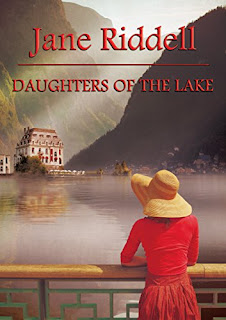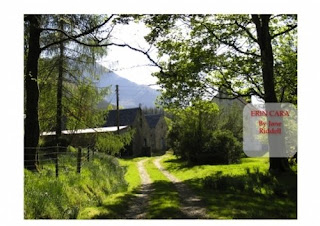Can you tell us a little bit about your latest book? When did it come out? Where can we get it?
My latest book
is an editing guide, Words’Worth: a fiction writer’s guide to
serious editing, which I published in April 2016. It’s short – 54 pages - and describes a technique for comprehensive
editing.
It’s available on Kindle from Amazon.
Wow! That's great!
This looks like something that Writing in the Modern Age viewers can really use. :)
So, is there anything that prompted Words' Worth? Something that inspired you?
Over the years I’ve learned loads about how to edit my work: the myriad things to check for, both in overviewing and line-to-line editing. Each time I’ve edited a novel, however, I’ve thought of new things to check. This has often been daunting, especially when in the middle of checking one aspect of writing, another one has occurred to me. Eventually I realized I needed checklists to allow me to be systematic and comprehensive. Better still, I wanted to devise an easily understood method of recording what I’d done. I did this and the process worked so well that I found myself describing it to anyone who’d listen. The logical next stage was to write about it and Words’Worth: a fiction writer’s guide to serious editing was conceived.
Exciting!
For many years,
writing was a hobby, something I would fit in around work. When we planned to move to France for three years (2006 – 2009), I knew
I wouldn’t be able work there with my limited French. A month or so before we left, on a wet
Saturday afternoon at the gym, walking on a treadmill and listening to Martha
Reeves and the Vandellas singing "Dancing
in the Street", I had a defining moment when I thought, ‘I’ll give writing a
go.’ And I haven’t looked back. Interestingly, it was only during our second year in Grenoble that I was
able to tell people I’m a writer, without that critical demon in my head
accusing me of being a fraud.
Oh, I hear you! It's tough getting past that inner critic.
Ian McEwan, Clare Francis, Anita Shreve, all of whom
have a wonderful use of language, the ability to create plausible characters,
describe setting, and to tell a story.
Great!
So, do you write in a specific place? Time of day?
At home I have a desk in our sitting room where I
write. I’m surrounded by large yuccas
and rubber plants which I enjoy looking at.
I
also rent desk space at a wonderful social enterprise organization, The
Melting Pot, in Edinburgh. Sometimes I
go to our local café, aptly named
Nom de Plume, which is a lovely venue – cozy in winter, sunny in
summer, where they serve delicious cheese scones and chocolate cake. There are also a few quirky places I
use.
If I’m on my exercise bike,
I rest my laptop on the handlebars and combine my workout with writing
or editing. If we’re traveling and the
scenery is boring or darkness
has fallen, I sometimes write in the back of our van.
As for time of day, I don’t have a routine. It could be any time between 11 am and 2
am. Afternoons tend to be my most
productive times for the actual writing/editing part. Mornings I often spend promoting my books. I’m not one of those writers who starts at 6
am and finishes at 10 pm every day.
Oh, good Lord! Me neither! LOL.
The muse just comes when it wants, but I still try to devote myself to my projects as much as possible when I'm focused on one.
So...are there any words you'd like
to impart to fellow writers? Any advice?
I’ve found that
the best ways to improve my writing are to read the “how to” books and to read fiction as much as
possible to see how other people write and decide on
what I think works and what doesn’t.
Receiving feedback on my
writing has been useful, but it’s important to be discerning about choosing
readers. I was lucky enough to have a mentor for a year, and her
feedback was invaluable.
That's awesome!
And thank
you for offering those words of wisdom to our readers. You're so
right!
A good critique partner or beta reader is priceless. ;)
Readers,
here is the blurb for Words' Worth.
Thank you so much for stopping
by to visit us here today at Writing in the Modern Age. It was wonderful
having you! :)
This compact and concise handbook will be useful
to writers looking at a finished manuscript and wondering how to edit it. There
are two sections, one for scene-editing, e.g. considerations of consistency,
pace and point of view. The second is for line-editing, e.g. pruning back
unnecessary words, avoiding repetition or clumsiness, generally polishing the
prose until it is strong and readable. Both beginning and more experienced
writers should find this guide helpful.
THINGS TO CHECK: PART 1 - OVERVIEW EDITING
Hooking the reader with the opening line
Some
readers may give the book several pages to whet their interest. Others will
not. Lovers of literary fiction are more likely to tolerate descriptive
passages before the protagonist first appears.
Appropriate pace
It
is important not to rush from one piece of action to the next. Characters need
time to reflect on what has just happened. Readers want to know their
reactions. Be particularly careful about not rushing significant parts.
Focus
Are
you hopping from one storyline to another, or is it clear what the
scene/chapter is about?
Scene beginning with action
Beginning a scene with action is more
likely to hook the reader than beginning with reflection or description,
although this depends on genre. A “quieter” novel will have more reflection
than an action story. Note that in this
context dialogue counts as action. Ideally every scene should be joined (in
the writer’s head) by the word ‘but’ or ‘however’, meaning that the story is
driving forward.
Scene ending with action
It’s important to make sure your scene has
an ending and doesn’t just stop, to avoid the reader becoming confused. The
exception to this is the cliffhanger.
Do
you have a closing line that will urge the reader to continue reading?
Plot or characterization building to conclusion
Scenes/chapters
must drive the plot or reveal more about the personality of one of the key
characters, in other words, have purpose. If your scene builds to a conclusion,
you will know it achieves a purpose and isn’t simply padding.
Character interaction
Do
characters interact with each other rather than spending large chunks of time
in solitary reflection? Over-reflection slows down the pace. However, the
proportion of reflection compared with action will vary depending on the type
of writing. A literary author such as Anita Brookner may have page after page
of introspection. Someone writing a comic romp will include little
soul-searching.
No excessive foreshadowing
While
it’s important to set the stage for what happens, so that when it does, it
seems plausible, guard against making it too easy for the reader to guess what
lies ahead.
Purchase Links:
Amazon Universal: http://bookgoodies.com/a/B01H2B9ZF0
This book sounds great! As aforementioned, I think this will really help writers of all stages, part of whom we intend to assist here on Writing in the Modern Age.
We'll be sure to check it out!
Author Bio
 Jane Riddell is
a Scottish writer based in Edinburgh. For years she worked for the NHS as a
dietitian and health promoter, writing being a hobby. In 2006 she impulsively moved her family to
France, and during her three years there writing became a passion.
Jane Riddell is
a Scottish writer based in Edinburgh. For years she worked for the NHS as a
dietitian and health promoter, writing being a hobby. In 2006 she impulsively moved her family to
France, and during her three years there writing became a passion.
Jane writes
contemporary fiction and her novels Daughters of the Lake and Chergui’s Child
can be found on Amazon.
Jane is also the
proprietor of an editing business, Choice Words Editing.
Author Links:
Website: http://quietfiction.com/
Facebook: https://www.facebook.com/jane.riddell.90
Amazon
Author Page: https://www.amazon.com/Jane-Riddell/e/B00B9E4ABQ/









